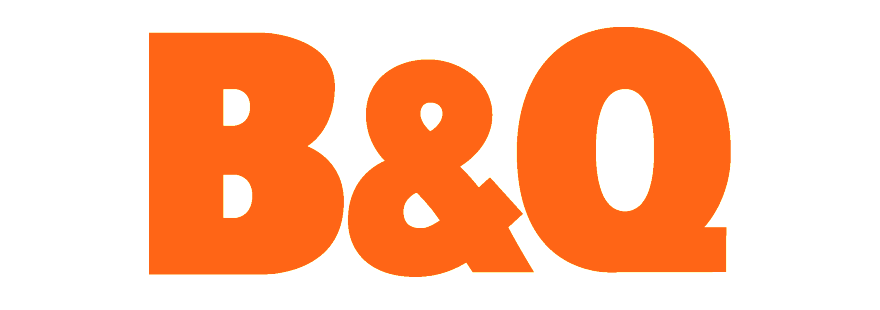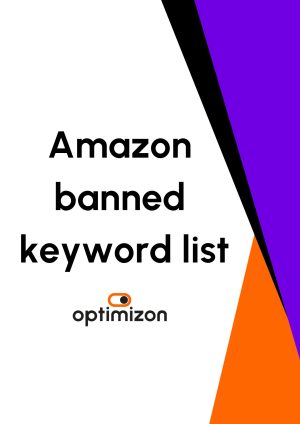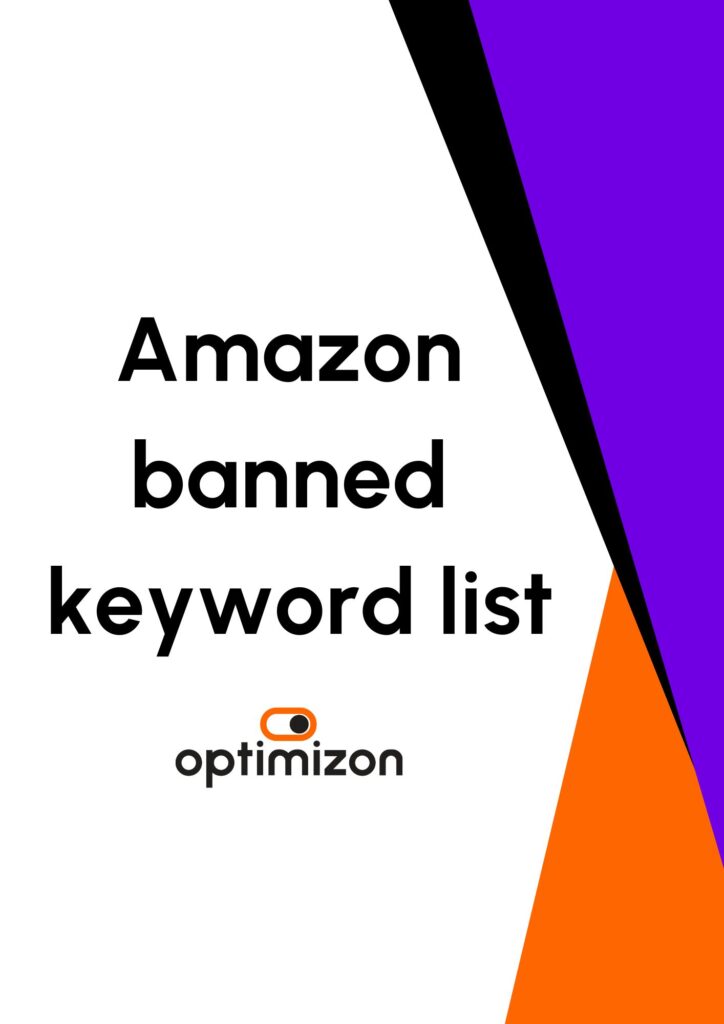The best Amazon alternatives in 2022 - marketplaces that will increase your sales
Amazon is the world’s largest ecommerce platform. It’s no surprise therefore that its success has spawned a host of rivals. Recently, that growth in Amazon alternatives has been exponential. Exciting new marketplaces being launched every week.
There are five main routes for the new type of marketplaces springing up:
- Ecommerce – designed for manufactured, branded products such as Amazon, Wayfair and OnBuy.
- Maker led – designed for artisans and craftspeople such as Etsy.
- Retail led – expanding an existing consumer website such as Next and M&S.
- Auction – such as eBay and Depop.
- Publishing brands – such as House Beautiful and Country Living, who are also in the exhibition space. They are now capitalising on their long-standing relationships with advertisers and exhibitors.
eCommerce marketplaces accounted for 62% of worldwide online sales in 2020. 70% of consumers cite them as the most convenient way to shop. The relentless growth of this retail phenomenon, albeit fast-tracked by the pandemic, certainly looks set to continue.
Whatever your unique business needs, there’s a marketplace out there for you. Let’s take a look at the top five.
eBay– the original online marketplace
Launched in the US in 1995, eBay as an auction website selling collectable items from one consumer to another.
You may be thinking selling on eBay is old-hat when talking about Amazon alternatives. However, eBay is worth a fresh look. Today, most eBay transactions are fixed price. New products sold by businesses and professional eBay sellers direct to shoppers.
In fact, it has a growing reputation for selling well known branded goods and upmarket items. A deliberate practice by eBay which has had a policy of pursuing specific categories for a number of years.
One of the key differences between eBay and Amazon for sellers is the support you’ll get directly from eBay. Getting a decent Amazon manager can take years, but on eBay, if you’re the type of business they want to attract, it will happen immediately. You’ll also be offered a host of incentives such as reduced fees.
If you’d like to talk to an eBay manager about the marketplace or what’s on offer, please get in touch. Ask us for an introduction and tips on the best way to approach it to get the best deals.
So, why sell your brand on eBay?
You guessed it – to reach a wider audience. eBay is not only a marketplace that people know and trust – it’s a household name. eBay has over 180 million active buyers worldwide. eBay has the potential to drive considerable volumes of traffic to your business.
If you are eager to capitalise on its global reach, eBay presents an ideal opportunity to test the waters. With 25 international sites, this mega marketplace is a cost-effective way to introduce your products in different markets.
eBay storefronts are a great place to showcase your products and build brand awareness. This subscription-based feature can be customised to reflect your own unique identity, tell your story and build emotional connections with your audience.
Of course, a storefront isn’t just great for exposure. It also allows you to group your listings into categories. Putting everything in one well-organised space conveniently accessed via your own URL. And the story doesn’t end there. eBay storefronts give you the tools to create email campaigns. This is an ideal way to communicate promotions and new product updates.
eBay Fulfilment
In response to the significant growth in online shopping as a result of the pandemic, 2021 saw eBay launch its first end-to-end fulfilment service. UK sellers can now store and ship products using eBay’s logistical infrastructure. eBay FBA makes it easier to fulfill orders without third-party involvement.
In the battle of the ecommerce powerhouses, Amazon reigns supreme by some margin. Having outpaced eBay in sales revenue by some $470 billion compared to eBay’s $10.3 billion in 2021. The status quo looks set to continue. But that’s not reason to miss out on this huge marketplace.
OnBuy – an Amazon alternative with distinctly British roots
A relatively new kid on the marketplace block, OnBuy launched in November 2016.
Selling everything from toys to tech, the Dorset-based company reported a staggering 24,000% GMV growth in its first four years of trading. OnBuy is a fantastic marketplace if you’re seeking fresh Amazon alternatives.
Widely accepted as a major player in the marketplace sector, OnBuy Marketplaces has a customer base of more than 8 million and growing. 11,000 sellers bringing 35 million products to market across every conceivable category is fast positioning the platform as Britain’s alternative to Amazon.
So, what makes OnBuy unique?
OnBuy prides itself on being a level playing field with a fair and transparent approach to ecommerce. The company has vowed never to compete with its retailers. As such, OnBuy doesn’t hold its own stock. Sellers can rest assured they are only ever trading alongside other professional businesses.
OnBuy’s no-nonsense pricing structure is another key point of difference. Competitive selling fees endorsed by a Transparent Fee Guarantee ensures fairness for everyone. It also means lower retail prices for shoppers. There are no listing fees. Instead, OnBuy offer two subscription plans – standard and partner. The later includes improved search ranking and priority support.
Fast growing marketplace
Of course, this ecommerce newcomer offers all the security features you would expect from an online marketplace. Secure PayPal checkout with 180-day buyer protection, and 47,000 Trustpilot reviews to name a few.
A seemingly perfect platform for UK-based businesses. OnBuy’s global ambition will see the marketplace go live in over 140 countries by the end of 2023.
Is your brand is looking at Amazon alternatives such as OnBuy? Reach out to us to discover how your brand can be in front of millions of customers on the OnBuy marketplace.
B&Q (diy.com) – the UK’s most recognisable home improvement retailer
As if being one of the UK’s top retail websites wasn’t kudos enough, this year has seen B&Q significantly expand their home improvement ecommerce platform, diy.com.
Now a fully-fledged marketplace, customers will be able to buy an additional 100,000 SKUs within the first six months. Nearly three times more than before.
New categories have been added to the company’s existing product offering. Expanded thanks to carefully chosen third-party retailers such as Black & Decker, Osram and Breville.
All products will be available for home delivery. Click + Collect options are planned for later in the year. In-store returns across many items will make for a convenient and hassle-free shopping experience that consumers will enjoy.
Home improvement products
B&Q’s new marketplace gives affiliate retailers an unmissable opportunity to partner with a British brand shoppers know and trust. Offering the convenience of a single online home improvement destination. Third-party sellers will benefit from diy.com’s significant traffic.
Of course, B&Q aren’t the first UK company to capitalise on the benefits of an ecommerce marketplace. British clothing chain NEXT, which own around 500 stores in the UK and Ireland, generated substantial growth following the launch of its online marketplace, Next Label.
In just three years Next has doubled its third-party brand offering from 500 to 1000. This recorded £464 million of revenue in the year to January 2021. It is proof, if ever it were needed, that the combination of an ecommerce marketplace with in-store collections and returns is a winning formula.
Talk to us about we can help scale your brand on the B&Q marketplace.
Wayfair – a premier platform for homeware brands
Widely accepted as “the Amazon of the home goods market,” Wayfair dominates this lucrative online space.
Launched in 2011 as the consolidation of more than 200 niche sites selling everything from cd racks to sofas, the marketplace has become a one-stop shop for home furnishings.
Wayfair sells more than 14 million products purchased from 11,000 global suppliers. The platform operates a drop-shipping business model, meaning they don’t manufacture or hold any stock. Instead, suppliers ship directly to customers using Wayfair’s extensive network of logistics hubs.
Reduced competition policy
As a focused marketplace dedicated to the home furnishings sector, Wayfair also operates a reduced competition policy. Despite offering a broad selection of products, each category is carefully curated with sellers being pre-approved as Wayfair partners. The result – less competition and more sales.
With only a single bricks and mortar store in the US, Wayfair invests heavily in its digital marketing. The company spends 50% of its revenue on advertising, driving more than 30 million customers to its site in 2021.
Wayfair’s annual revenue has increased year on year from $601 million in 2012 to $14.1 billion in 2020. This figure declined post-pandemic to $13.7 billion in 2021. However, the resurgence of interest in DIY and home décor fueled by the Instagram effect can mean only one thing – Wayfair is here to stay.
Amazon – explore new tools & selling channels instead of looking elsewhere
Looking for alternatives? Consider exploiting new channels and tools on the Amazon platform instead.
Strange to include Amazon in the Top 5 Amazon Alternatives list, right?
There is a good reason for doing so. There are new features offered by the largest online marketplace on the planet that may be worth a second look if your business isn’t capitalising on them already.
In addition, if you’re looking for Amazon alternatives, it may be that your brand isn’t meeting its potential on the mega-platform yet.
Substantial growth
From humble beginnings as an online bookstore in 1994, the company has exploded. Amazon is a global phenomenon and one of the most powerful brands on the planet.
Originally shunning third-party sellers, it started to invite them onto the platform in 1999. At first it was assumed, by both Amazon and blue-chip brands, that it would be a marketplace for bedroom sellers. No one imagined then that it would become a major channel for the world’s top brands.
The tipping point came in 2015 when the value of goods sold by third party sellers exceeded sales by Amazon itself. Suddenly, the big names wanted a piece of the action. Brands sought to piggy-back off Amazon’s hard-earned consumer reputation. Brands are also increasingly able to give consumers the same (or better) emotional experience on Amazon as they receive anywhere else.
Global marketplace
Amazon is available in multiple languages across 13 countries, and ships to all four corners of the globe. Having invested $16.9 billion into worldwide advertising and promotion in 2021 alone, it’s no surprise this retail giant dominates many of its markets.
With annual revenue rising year on year to $469 billion in 2021 (67% higher than the $280 billion reported in 2019), Amazon is the fourth most valuable company in the world. Amazon is now innovating in new markets and creating new tools to attract even more big brands.
Brand appeal
For brands the key to success is staying on top of all the features that Amazon has to offer. Recent innovations include Brand Story, a new interactive feature that sits above A+ content and links to the storefront. It is designed to appeal to brands and give consumers an excellent brand experience.
Multiple videos can now be uploaded, as well as product manuals and 360 photos. If you’d like to know more about how these new features fit into your customers’ overall buying journey. Please ask our experts for a review of your current creative work, and suggestions on how to boost conversion.
Amazon Business
Many brands seeking Amazon alternatives haven’t considered tapping into Amazon Business. Amazon’s rapidly growing B2B marketplace provides the opportunity to sell in bulk to retailers and other physical marketplaces.
Amazon Business provides some brilliant pricing and administration benefits. If your products are suitable for bulk selling, you should seriously think about getting in on the act before your competitors.
There is little doubt that Amazon Business will be a huge growth area. In fact, pre-pandemic, it was the fastest growing area of Amazon. It’s here to stay.
Our Amazon consultancy can help you to scale your brand on the most popular marketplace.
A new retail landscape
Online marketplaces have altered the retail landscape. Whilst the pandemic has simply pushed marketplace growth into 5th gear overnight
Marketplaces deliver more than just convenience – they are a way to elevate your business. They offer an efficient channel through which to market and sell your products.
More importantly, consumers have embraced the marketplace shopping experience. In response, businesses are developing marketing strategies that leverage these lucrative retail channels. More and more brands are realising that investing in marketing on a huge channel is prudent over persisting with traditional forms of digital marketing. Don’t be left behind. Choose the right marketplace mix for your business and stay ahead of the curve.
How can we help?
Optimizon is a leading Marketplaces and Amazon Consultancy. We are not just an Amazon Agency. We have specialists working in every major ecommerce platform, including eBay marketplace, OnBuy marketplace, Wayfair marketplace and B&Q marketplace.
Please get in touch if you have a question about the creative, technical, logistical or financial side of protecting your brand on today’s ecommerce marketplaces.









